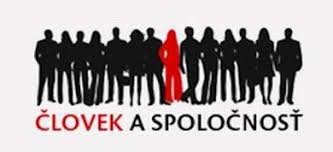Trust in People and Attitudes Towards Immigration
Trust in People and Attitudes Towards Immigration
Author(s): Jozef Výrost, Marek DobešSubject(s): Social psychology and group interaction, Evaluation research, Migration Studies, Inter-Ethnic Relations, Ethnic Minorities Studies
Published by: Spoločenskovedný ústav SAV, Slovenská akadémia vied
Keywords: Attitudes; Immigration; Trust in people; Structural equation modeling;
Summary/Abstract: We use data from the European Social Survey (ESS) Rounds 1-7 to investigate the relationship between trust in people and attitudes towards immigrants and immigration. Our analysis is based on large longitudinal comparative survey data (ESS), where the immigrant attitudes are operationalized by two groups of items: the attitude toward immigrants (“To what extent do you think [country] should allow people of the same race or ethnic group as most of [country]’s people to come and live here?“; “To what extent do you think [country] should allow people of a different race or ethnic group as most of [country]’s people to come and live here?“; “To what extent do you think [country] should allow people of poorer countries in Europe to come and live here?“) and the attitude toward immigration (“Would you say it is generally bad or good for [country]’s economy that people come to live here from other countries?”; “Would you say that [country]’s cultural life is generally undermined or enriched by people coming to live here from other countries?”; Is [country] made a worse or a better place to live by people coming to live here from other countries?”). We constructed a structural equations model comprised of three intercorrelated latent variables. Each latent variable was supported by three items from the ESS questionnaire. Latent variables represented factors and factor loadings for all items that were higher than 0.65, suggesting satisfactory factor stability for all three factors. These results show that the questions in the ESS questionnaire that targeted respective attitudes and values (immigrants, immigration, trust) are consistent and that each triplet measures a common underlying factor. We performed structural equations modelling (SEM) with three latent variables – attitudes towards immigrants, attitudes towards immigration and trust in people. We studied the correlations between the variables. The model fit for this model was satisfactory. RMSEA was 0.028, and CFI was 0.995. In the second step, we performed a multi-group SEM analysis. We introduced 32 groups, with each group representing data from one country. First, we tested an unconstrained model. We obtained 32 triplets of correlations. The fit of this model was satisfactory. RMSEA was 0.006, and CFI was 0.992.
Journal: Človek a spoločnosť
- Issue Year: 22/2019
- Issue No: 1
- Page Range: 34-43
- Page Count: 10
- Language: English

